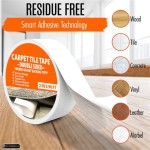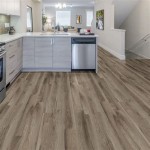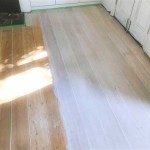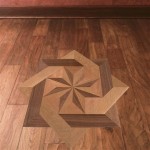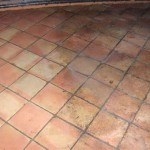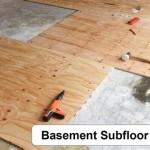Making Your Home Quieter: The Best Soundproof Flooring Materials
In any home, unwanted noise can be a major source of stress and disruption. Whether it's the constant hum of traffic, the pitter-patter of footsteps overhead, or the loud conversations of neighbors, excessive noise can make it difficult to relax, sleep, or concentrate.
One effective way to reduce noise pollution in your home is to install soundproof flooring materials. These materials are designed to absorb or block sound waves, creating a quieter and more peaceful living environment.
Here's a comprehensive guide to the best soundproof flooring materials available today:
Cork Flooring
Cork flooring is made from the bark of the cork oak tree. It's a natural sound absorber due to its cellular structure filled with air pockets. Cork flooring can significantly reduce impact noise (such as footsteps) and airborne noise (such as conversations).
Rubber Flooring
Rubber flooring is another excellent choice for soundproofing. It's made from recycled rubber and is highly resilient, providing excellent cushioning and sound absorption. Rubber flooring is ideal for areas with heavy foot traffic, such as kitchens, hallways, and playrooms.
Carpet and Carpet Underlay
Carpeting is a classic soundproofing solution. The plush fibers of the carpet absorb sound waves, while the underlayment adds an extra layer of sound insulation. Carpet is particularly effective at reducing impact noise.
Vinyl Flooring
Vinyl flooring is a versatile and affordable soundproofing option. It's made from resilient materials that absorb noise and resist wear and tear. Vinyl flooring is available in a wide range of styles and designs, making it a suitable choice for any room in your home.
Laminate Flooring with Acoustic Underlayment
Laminate flooring is a durable and cost-effective flooring option that can be made more soundproof with an acoustic underlayment. The underlayment acts as a soundproofing barrier, reducing both impact and airborne noise.
Additional Considerations for Soundproofing Floors
In addition to selecting the right flooring materials, there are a few other factors to consider to maximize soundproofing:
- Install a subfloor: A subfloor can provide an additional layer of sound insulation and help reduce noise transfer between floors.
- Seal gaps and cracks: Sound can travel through even small cracks or gaps in the floor. Seal these areas with acoustic sealant to improve soundproofing.
- Add rugs and other soft furnishings: Rugs, curtains, and soft furnishings can further absorb sound and reduce noise levels.
By choosing the right soundproof flooring materials and following these additional tips, you can create a quieter and more peaceful home environment, reducing stress and improving overall well-being.

How To Soundproof Vinyl Flooring Cow

6 Ways To Make Your House Quieter Through Better Soundproofing

Best Flooring To Absorb Sound Soundproof Cow

How To Soundproof Floors Do It Yourself Solution That Actually Work

When Quiet Matters A Guide To Acoustic Flooring All Things

How To Soundproof An Attic Floor Cow
How To Soundproof A Room Easy And Affordable Diy Soundproofing

30 Types Of Soundproofing Materials Explained

Soundproofing Carpet Floors Soundproof Cow

How To Soundproof Walls Floors Ceilings And Doors In New Construction Tm Soundproofing
See Also


